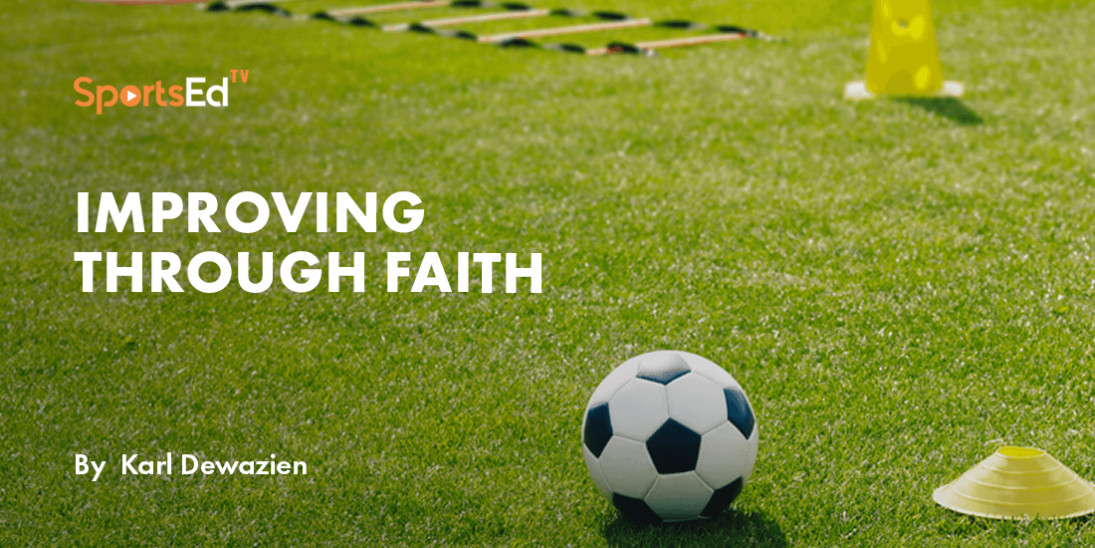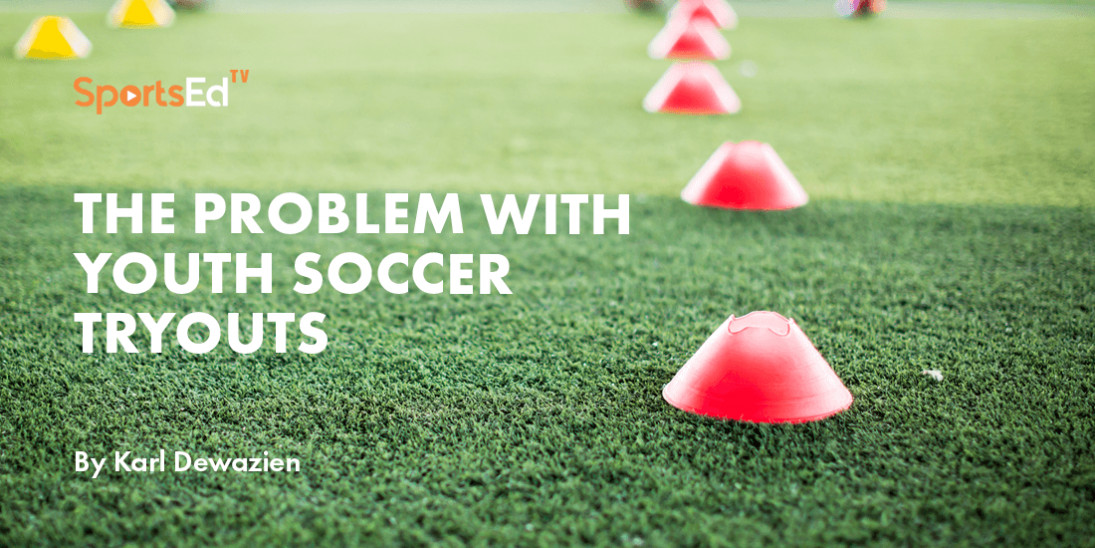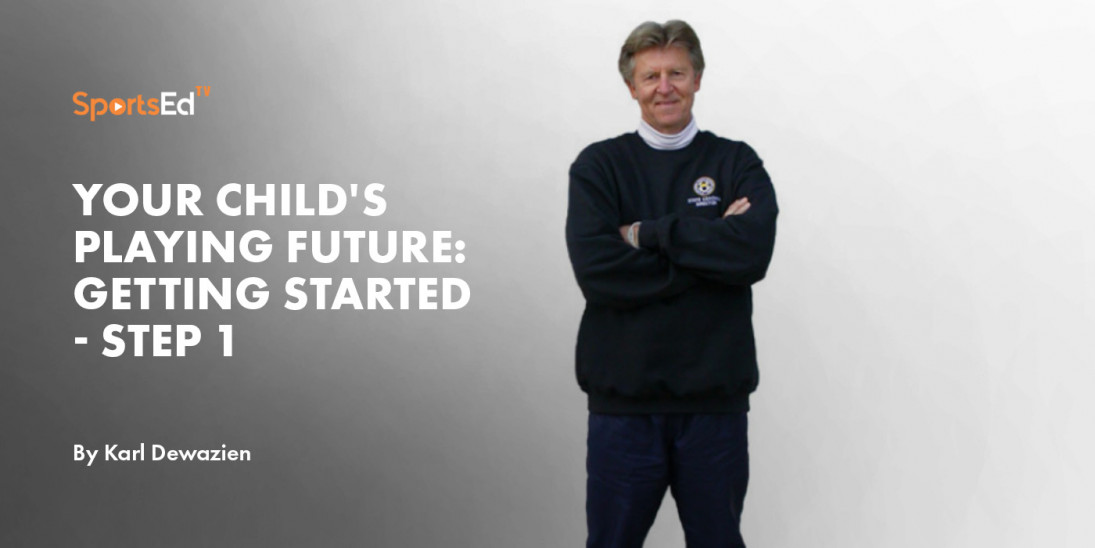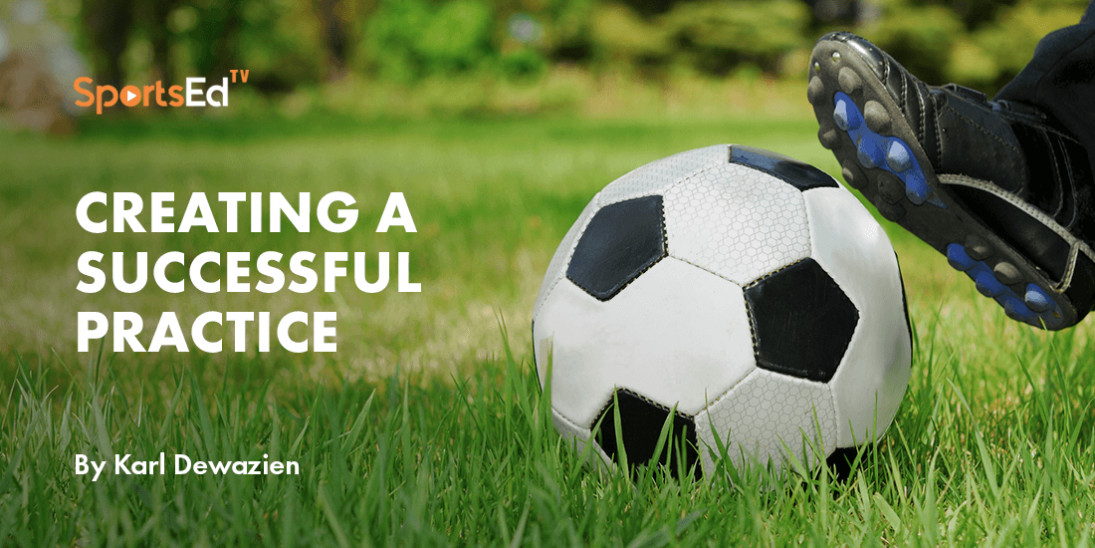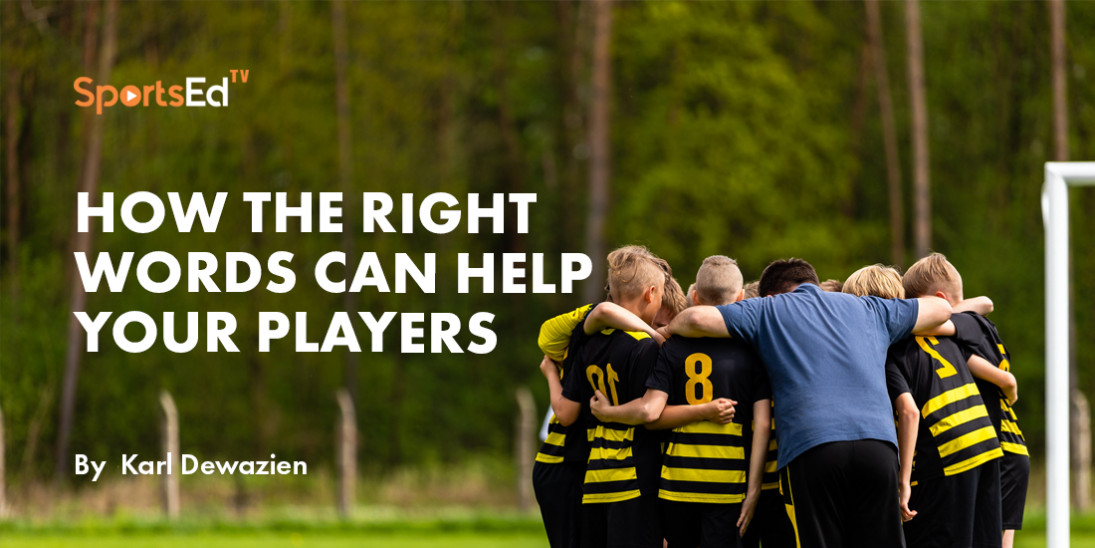Soccer
Welcome and thanks for visiting...

Preparing for the 'New-Normal' Season
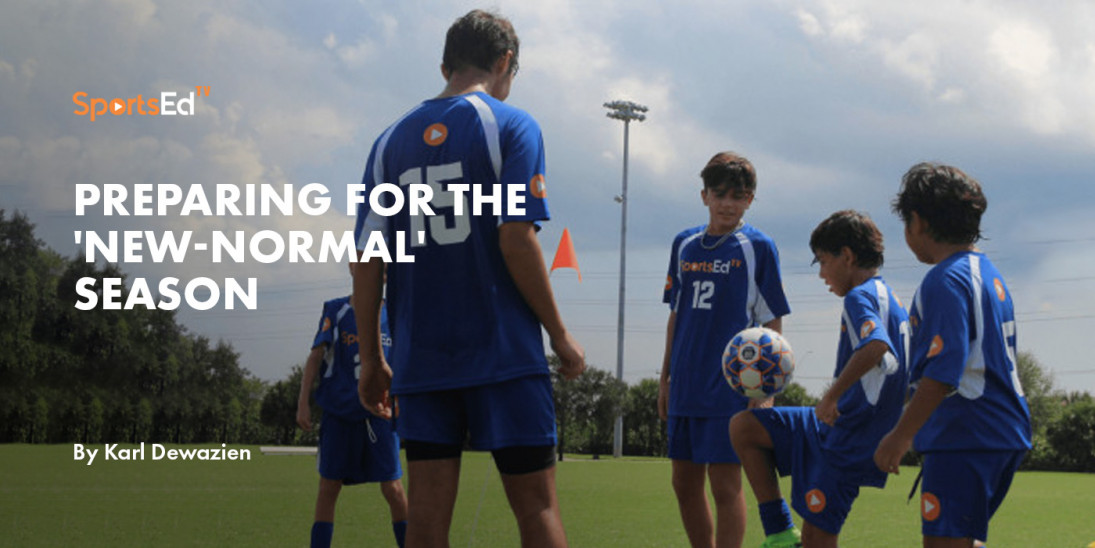
SportsEdTV Soccer is committed to bringing athletes, coaches, and parents pro-level Soccer education videos for FREE. All levels, anywhere, anytime. Check out our full instructional library and sign up to join our Soccer community.
Karl Dewazien of FUNdamental SOCCER, Emeritus State Director of Coaching for the California Youth Soccer Association 1978-2012, discusses how to start preparing for the next season after the COVID pause.
PREPARING FOR THE 'NEW-NORMAL' SEASON
I realize that this pandemic has disrupted everyone's role in life and coaching. In times like these, with practices and games canceled, we don't control the excessive downtime many of us are being forced to have. But we can control what we do with it!
Until the uncertainty ends, take some time to study and plan on eventually applying the following ACTIONS:
Activity! Appropriate soccer activities have to be your primary objective when planning how to run a practice session.
It would help if you remembered that Players come to practice to Play SOCCER, not soccer-related games. A flexible practice scheme can fulfill this goal by giving you the luxury to organize Individual games (1v1), Small Group Games (2v1, 2v2, etc.), Large Group Games (5v5, 5v4, 5v3, etc.) and Team games (scrimmages) into every practice session. For details, check out FUNdamental SOCCER
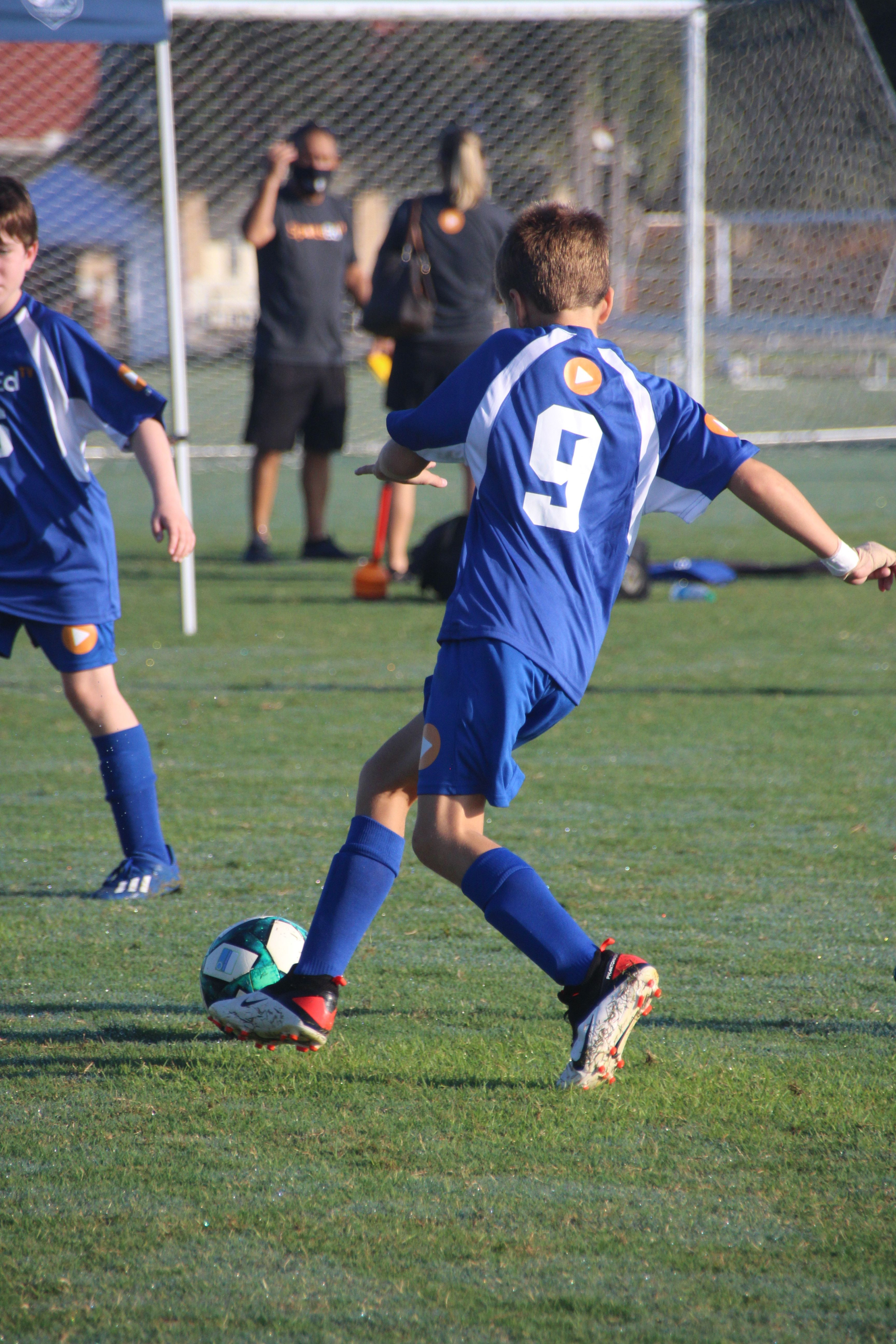 Let your players PLAY
Let your players PLAY
Clarify your practice session rules and expectations through individual and team discussions. That is, have the team decide what appropriate and inappropriate behavior is. It's actually fun to have them vote on their own practice session rules. From there, act firmly, fairly, consistently, and matter-of-factly when their actions go against their own established rules.
Teach less! When the players and the ball are in motion, soccer learning is constantly occurring. However, when players and the ball stop moving, then soccer learning stops! Let the activities flow uninterrupted as much as possible.
Remember they come to you to Play Soccer, and the main objective of soccer is to defend one's own goal while attacking the opponent's goal:
- Individually (Play - 1 vs. 1 games)
- In Groups (Play - Small-Sided Games)
- As a Team (Play - Scrimmage Games)
Ask yourself - Does it happen in the game? (Ex: sharks & minnows, etc.)
If the answer is YES - then do it in practice.
If the answer is NO - then don't do it in practice.
Interest in playing soccer needs to be developed. You may be faced with players who are not interested in playing our wonderful game, and you must adjust accordingly. Give appropriate attention to the disinterested players, but not at the expense of the rest of the team. Then, make the practices so much FUN that the disinterested player may want to join. Remember that when you are working with your players, you must be as helpful, understanding, and patient as you would be with your own children in their learning process.
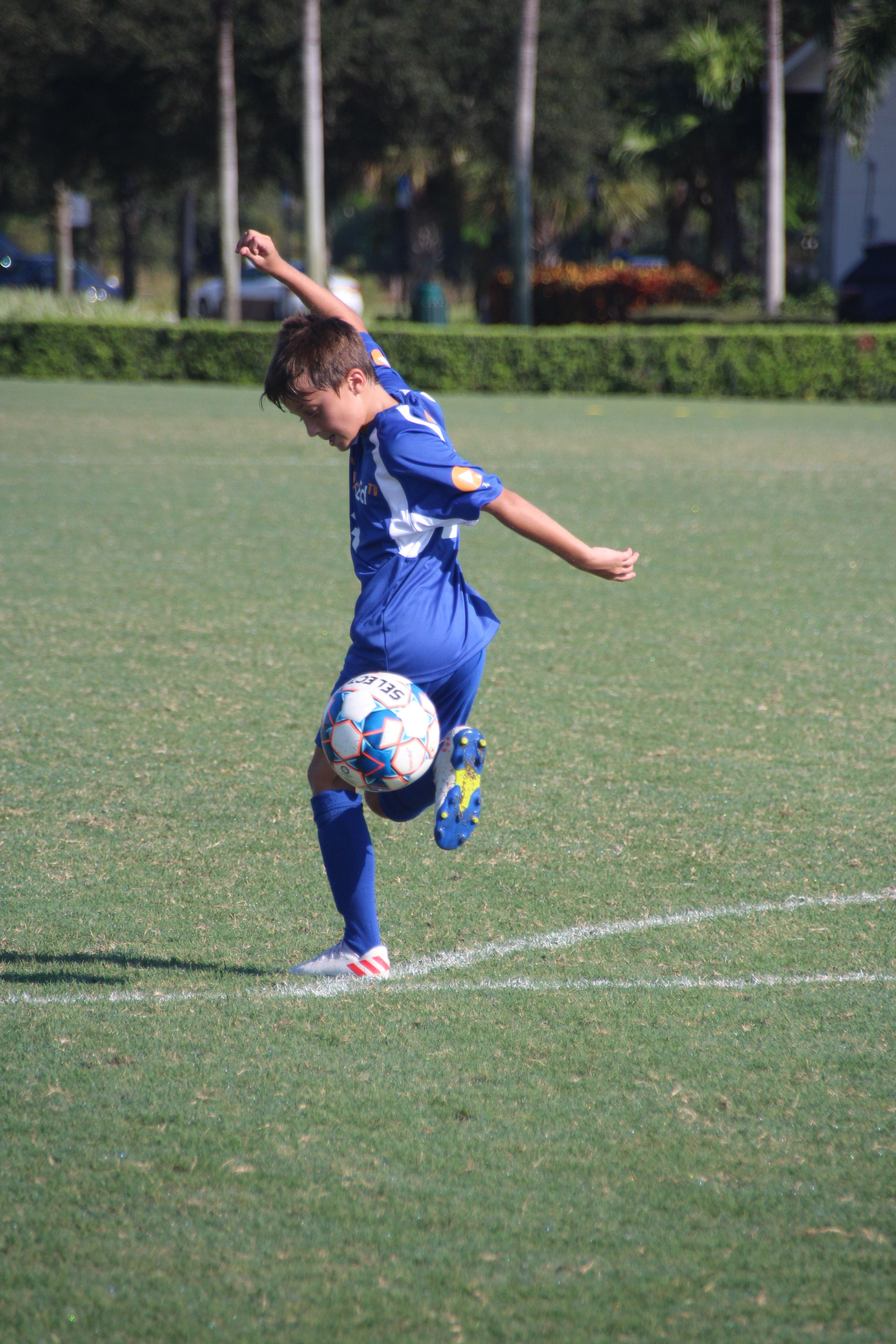
Your players are there to learn, improve, and have FUN!
Organize the practice session so that it becomes apparent it is a rehearsal for the game-day routine. This can only be accomplished through a consistent, sequential routine that allows your players to learn what is expected. It is wise to avoid too much variety. Suppose they are introduced to something different at each practice session. In that case, this will lead to some confusion, and confusion can lead to disinterest. It is also important to remember that all games must have a goal to Attack and a goal to Defend.
No Lines. No Laps. No Lectures! They already know how to stand in a line. Running around the field may be considered punishment. It is a fact that their attention span is less than a few seconds. It would help if you created a practice environment that minimizes the listening/lecture time and maximizes touches with the ball and playing time. In other words, allow them to play soccer, which forces them to make decisions and learn independently. Allow them to experiment and fail their way to success as they Attack the opponents' goal while Defending their own goal! Again...
Ask yourself - Does it happen in the game?
If the answer is YES - then do it in practice.
If the answer is NO - then don't do it in practice.
Self-Discipline.
Successful youth coaches focus on teaching the art of self-control because they realize that today's bickering could be tomorrows' back-talk. That today's pushing and shoving could result in tomorrow's fight. That today's disruptive practice player could become tomorrow's 'red-carded' player in a game.
You will find that the secret to good practice session discipline is acting firmly, fairly, consistently, and matter-of-factly when the players' actions go against your and their own established rules.
Do not allow your players to dress in their everyday clothes and wear hats while practicing – they need to dress like soccer players ready for inspection. Do not allow idle chatter once practice starts - that is to be taken care of before or after practice. No longer let them mess around – disruptive behavior should result in the player(s) being red or yellow carded and possibly dismissed from that particular practice.
Your quest is to correct, mold, and perfect the player's actions and reactions in practices - Today. Realize that the way a player is practicing is how they can be expected to play in the game - Tomorrow.
Your immediate goal may be teaching your players how to behave in your practices. You must also realize that the long-term results will prepare your players for future practices and other coaches.
What an excellent long-term result from using a flexible practice scheme: Future Coaches Being Able to Focus Strictly on the Players Technical and Tactical Development - Priceless!
Finally, I believe that…
The Outcome of Our Health is Infinitely More Important than the Outcome of any Game/Practice that We Will Need to Cancel!
For any questions, or if you'd like to suggest a topic for future blogs, be sure to email the SportsEdTV Soccer content manager at sbhandari@sportsedtv.com
Follow SportsEdTV Soccer on Facebook and Instagram to stay up-to-date with the latest content

